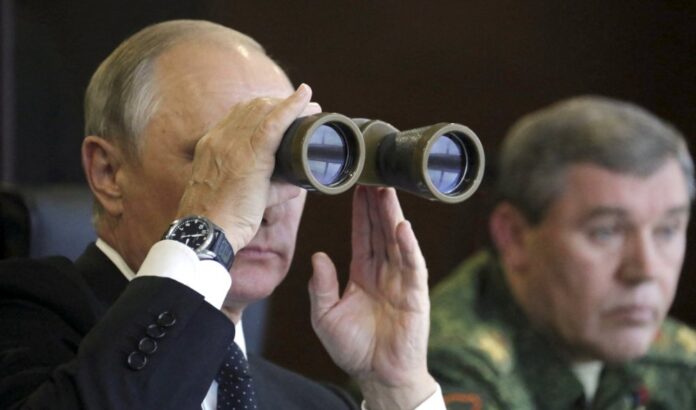WASHINGTON: Russia has covertly spent more than $300 million since 2014 to try to influence politicians and other officials in more than two dozen countries, the State Department alleges in a newly released cable.The cable released Tuesday cites a new intelligence assessment of Russia’s global covert efforts to support policies and parties sympathetic to Moscow. The cable does not name specific Russian targets but says the US is providing classified information to select individual countries.It’s the latest effort by the Biden administration to declassify intelligence about Moscow’s military and political aims, dating back to ultimately correct assessments that Russia would launch a new war against Ukraine. Many of President Joe Biden’s top national security officials have extensive experience countering Moscow and served in government when Russian President Vladimir Putin launched wide-ranging campaigns to influence the 2016 and 2020 US presidential elections.A senior administration official declined to say how much money Russia is believed to have spent in Ukraine, where President Volodymyr Zelensky and his top deputies have long accused Putin of meddling in domestic politics. The official noted allegations of Russian influence in recent elections in Albania, Bosnia and Montenegro, all Eastern European countries that have faced historical pressure from Moscow.Unlike declared efforts by foreign governments to lobby for preferred initiatives, Russia’s covert influence involved using front organizations to funnel money to preferred causes or politicians, the cable alleges. That includes think tanks in Europe and state-owned enterprises in Central America, Asia, the Middle East, and North Africa.The US has in its history also covertly funded political groups and been responsible for efforts to topple or undermine foreign governments. The official, who briefed reporters on condition of anonymity under rules set by the administration, rejected comparisons between Russia’s activities and current US financing of media and political initiatives.Putin was spending huge sums “in an attempt to manipulate democracies from the inside,” the official said.State Department spokesman Ned Price called Russia’s covert funding an “assault on sovereignty.””It is an effort to chip away at the ability of people around the world to choose the governments that they see best fit to represent them, to represent their interests, and to represent their values,” he said.Russia’s embassy in Washington did not immediately respond to a request for comment.The State Department took the unusual step of releasing a diplomatic cable that was sent on Monday to many US embassies and consulates abroad, many of them in Europe, Africa and South Asia, laying out the concerns.The cable, which was marked “sensitive” and not intended for foreign audiences but was not classified, contained a series of talking points that US diplomats were instructed to raise with their host governments regarding alleged Russian interference. Among steps diplomats were told to recommend include sanctions, travel bans, and exposure of covert financing.According to the cable, intelligence officials believe Russia planned to transfer “at least hundreds of millions more” dollars in funding to sympathetic parties and officials around the world.The cable does not say how intelligence officials came up with the total figure of $300 million. It also does not address concerns that Russia or other adversaries may again try to interfere in US politics.The official briefing reporters noted that Biden had recently extended a national emergency declaration addressing the continued threat of foreign election interference.”We’re promoting coordination with our democratic peers,” the official said. “And we’ll be exchanging lessons learned, all to advance our collective election security, but also our election security here at home.”Josh Rudolph, a fellow at the German Marshall Fund’s Alliance for Securing Democracy who researches Russian and Chinese financial influence, compared the White House decision to release its new findings with its declassification of Russian plans and intentions in the Ukraine war.”That made a lot of sense because it got the Ukrainians ready for their own defense and it helped rally the Europeans to build an international coalition,” Rudolph said. “This can have all of those same benefits but also defang the operation itself. If the target is voters, then what you mainly have to do is reach those voters and let them know what’s happening to them.”

